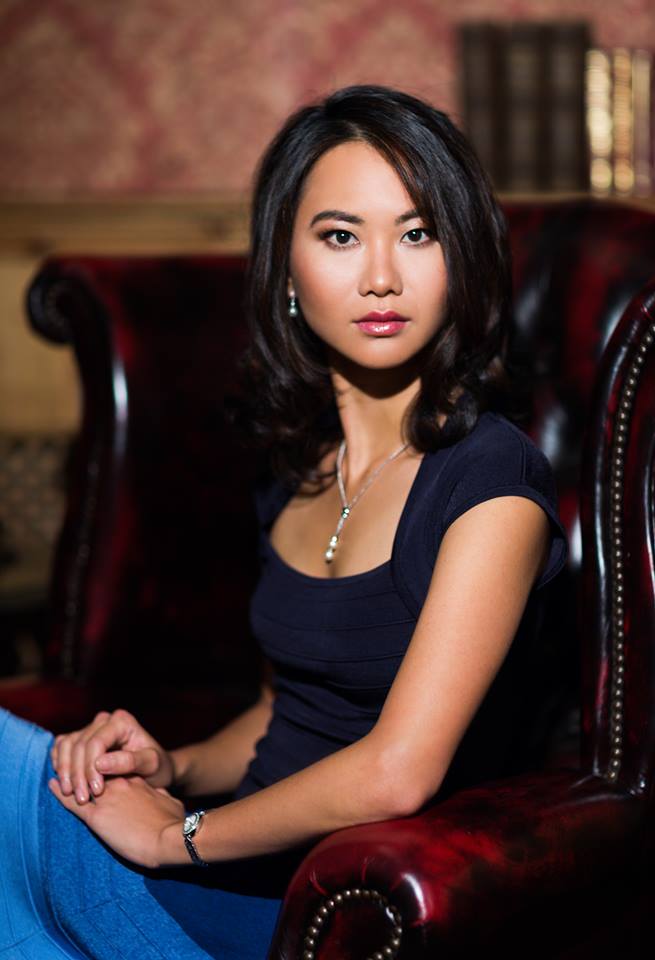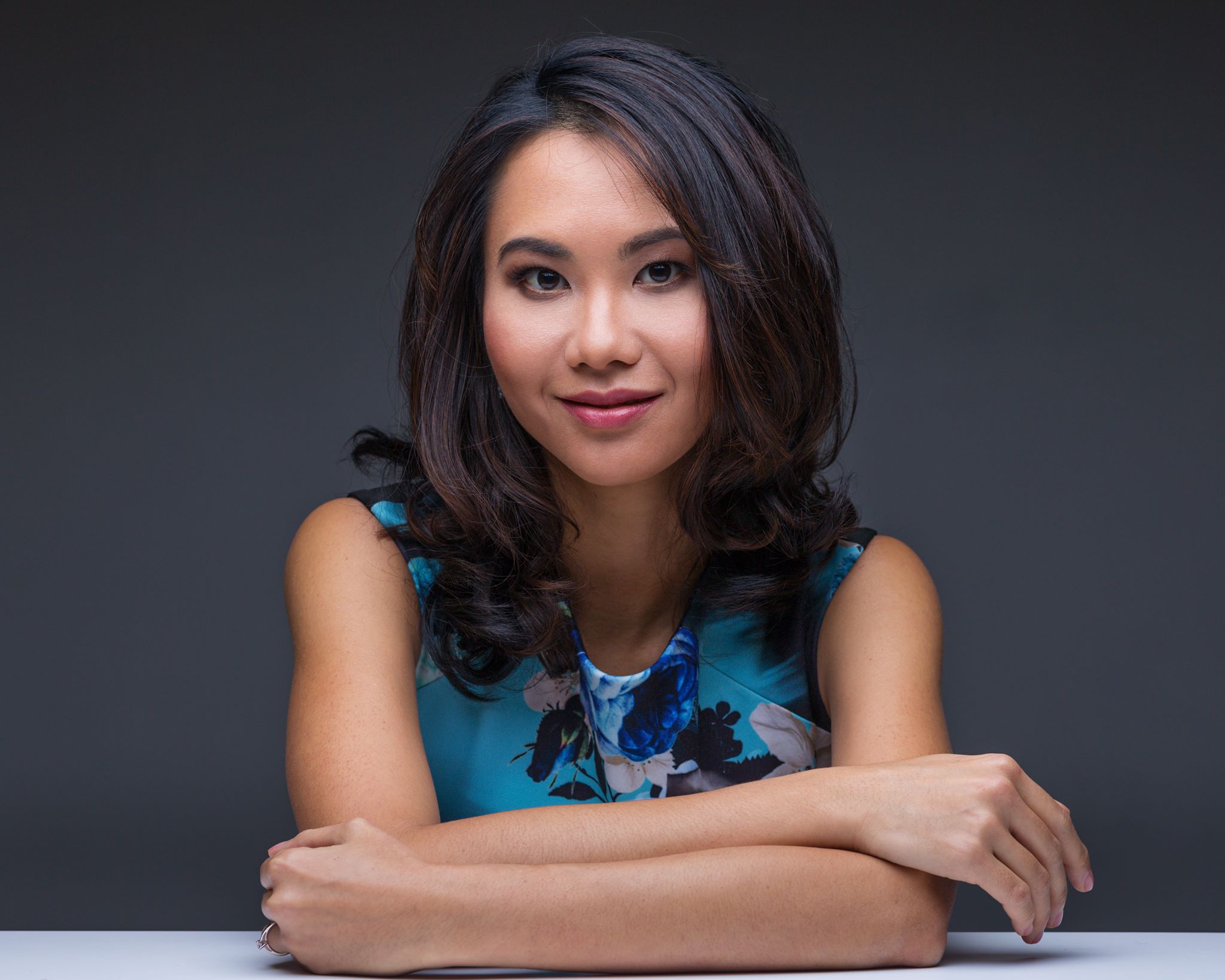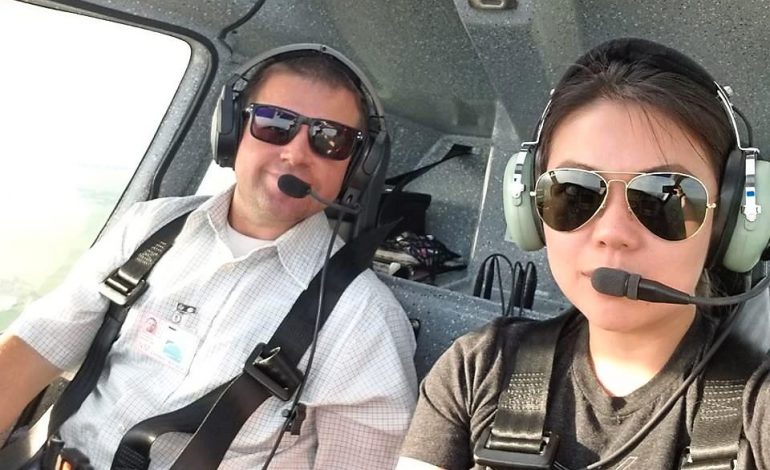Felicia Yap’s “Yesterday”: Of remembering, forgetting, and what-if’s

Credit: Tim Steele (photographer) Copyright: Felicia Yap
Imagine a society divided not according to wealth or education, but on its capacity to remember. Humans are either lowly Monos (those who remember only yesterday) or enviable Duos (who can also remember the day before). The only connection to the past is an iDiary (hello Apple!) in which people record and keep track of all notable events – or at least, their version of them.
Now throw in love, betrayal, murder, and an investigation, and you’ve got a debut novel that has been billed “the thriller of the summer”, “a 2017 literary event” and “a mash-up of Gone Girl and Minority Report.”
Written by Malaysian-born first-time author Felicia Yap, “Yesterday” was the subject of a fierce bidding war amongst big name publishers even before it hit the shelves this month.
Even the novel’s genesis isn’t short of allure: the idea percolated as Yap was on her way to a ballroom dance class. The question on her mind (and now on her book’s jacket) was, “How do you solve a murder when you can only remember yesterday?”
Yap grew up in Kuala Lumpur. She studied biochemistry at Imperial College in London, (where she currently lives), and then worked as a researcher at the European Molecular Biology Laboratory in Heidelberg, Germany. Realizing that “the sterile environment” of the lab wasn’t for her, she then read history at the Cambridge University, completing a PhD on Asian prisoners of war during and after World War 2. She has also worked as a journalist for The Economist and Singapore’s Business Times, as well as a model. She is currently an associate of the London School of Economics’ Saw Swee Hock Southeast Asia Centre.
She tells DW how technology, dementia, memories, and “the lies we tell ourselves” all contributed to her bestseller that reportedly has already piqued Hollywood’s interest.
1) Parallels are often drawn between current world events with say, George Orwell’s 1984 or Margaret Atwood’s The Handmaid’s Tale. Atwood has described her genre as “speculative fiction”. Is there a particular genre you’d ascribe to your book?
Yesterday is a high-concept thriller with a love story at its core, and with both philosophical and psychological elements. My book also has a speculative dimension because it is intended as a ‘what-if’ mirror to ourselves.
2) Do you see a possibility of some of what you wrote coming to pass in future? Or even now?
Dementia is fast becoming a scourge to society. Two decades ago, early-onset dementia was usually diagnosed in patients in their late sixties but the condition is now striking people at a younger age. Scientists say that environmental factors are to blame, which is most alarming when you think about it. If something in the food we eat (and the air we breathe) is disrupting our neurological functions – and our memories – this is indeed pretty scary.
Duos in Yesterday lose their short-term memories at the age of 23, while Monos lose theirs at the age of 18. In the UK alone, more than 700 people in their thirties have been diagnosed with dementia. It would be dreadful if people in their twenties were diagnosed with the condition. I hope this doesn’t happen in the future.
Secondly, people in Yesterday must rely on iDiaries to remember their pasts, to understand where they have come from. I wanted the book to hold up a mirror to our digital preoccupations, to our increasing obsession with (and dependence on) technology as a medium of remembering. Recent scientific studies suggest that our increasing reliance on technology is paradoxically affecting our memories. In particular, Google searches and Wikipedia articles are making it harder for us to retain information without the aid of a computer. It’s possible that we may become even more dependent on our smartphones (and other digital repositories), thereby losing more of our ability to remember.
Finally, I wanted Yesterday to explore the relationship between truth, lies and memory, in our own personal lives and within the digital universe. Is the information on our electronic devices true? What’s fact? What’s false? In this era of ‘fake news’, can we really believe the information stored on these platforms? Yesterday is partly about the unreliability of information in the digital age, the blurred lines between ‘fact’ and ‘fake’, the lies we choose to tell ourselves.

Credit: Tim Steele (photographer) Copyright: Felicia Yap
3) You were hit by a motorcycle when you were six and your parents’ divergent versions of the event struck you even then and you saw that memories could be “quite slippery” as you’ve put it. What other stand-out life events helped shape your story?
I spent most of my PhD harvesting war stories and experiences, particularly people’s memories of the Second World War. I read a lot of war diaries (maybe this is why diaries feature so prominently in Yesterday). I also interviewed several ex-prisoners of the Japanese for my research work. Most of them were in their eighties and nineties. I realized from these interviews that memories are transformed by distance and time. Memories are also replaced and rearranged by all sorts of things. In the case of some ex-prisoners I spoke to, their personal memories of the Japanese occupation were even substituted by images from war films they had watched.
These interviews also helped me understand why (and what) people choose to remember – or forget. More often than not, we remember things that make us feel. For many ex-prisoners of the Japanese, their most vivid memories of the Second World War (and which continued to linger years later) were of events that triggered strong emotions like fear, sorrow, and hope. This helped me write each diary entry in Yesterday, to infuse each sentence with greater feeling.
4) What is your best memory?
That was when my partner Alex proposed to me in on a beach in Nevis, one beautiful evening*. Nevis, by the way, is immortalized in Yesterday as the place where the two main characters, Mark and Claire Evans, return to each year. Mark eventually figures out the meaning of love, based on a re-reading of one of his old diary entries (about a particularly memorable encounter with an elderly woman on a beach in Nevis).
(*For the record, Yap said yes).
5) What memory do you wish you could erase?
I have quite a few bad memories which I would happily erase if I had a chance. Some of them still ‘haunt me in the middle of the night’, as one of my protagonists (Sophia Ayling) says in Yesterday. I once typed a man’s name incorrectly in a newspaper article I wrote ages ago. I called him Mr Smelly instead of Mr Shelly. The newspaper had to issue a contrite apology the following day, along the lines of ‘Dear Mr Shelly, we’re so sorry we called you Smelly’.
6) Can memory be entirely erased?
It’s a good question. Recent academic papers suggest that scientists have succeeded in erasing specific memories in mice. I don’t know whether it’s indeed possible for memory to be entirely erased, or if this is just wishful thinking. I studied neuronal connections during my previous incarnation as a biochemist – I did laboratory work on the brain cells of guinea pigs. If I remember correctly, memory pathways in humans are extremely complex and extensive. It would be a real challenge to target specific pathways in human beings.
7) You said in a previous interview that “we are all afraid that we’ll forget and be forgotten”. What are you most afraid of forgetting?
I collect experiences, particularly travel experiences. I own very few things, mainly a laptop, three bookshelves, and six chairs. This is why I’m particularly afraid of forgetting what I’ve experienced. Because if I do forget, it really doesn’t leave me with a lot.
I’m also afraid of forgetting who I am, what makes me a person. Where I’ve come from, where I am now, and where I hope to be. Because this would be tantamount to losing my identity, my sense of self. I believe that the fear of forgetting (as well as the instinctive desire to remember) is real and common to all of us. It’s what makes us human.
8) What quality about you do you hope will never be forgotten?
I hope never to be forgotten as a writer. It would be wonderful if some of my writing (perhaps just a few sentences I’ve written) were remembered long after I’m gone.
Author/Interview: Brenda Haas
Editor: Anne Thomas
_____
WTO RECOMMENDS
A woman’s fight to embolden Malaysia’s voiceless
Lawyer Siti Kasim has been striving to empower Malaysia’s marginalized and oppressed communities to speak up for themselves. Vociferous, unapologetic, doesn’t suffer fools gladly: that about sums up Siti Zabedah Kasim.
Changing education landscape of Pakistan
Seema Azis is one of the most prominent business leaders in South Asia. However, she is mostly known for her work in improving the education sector of Pakistan. Aziz runs more than 700 English medium schools in Pakistan for the underprivileged.
Muniba Mazari: Empowering Women and Girls in Pakistan
Muniba Mazari represents the modern woman in Pakistan. In a conservative country like Pakistan, she has broken the stereotypes. She is a writer, artist, singer, activist and a motivational speaker . The beautiful and attractive young female is also a paraplegic, having lost control of both legs after sustaining injuries in a car accident.





